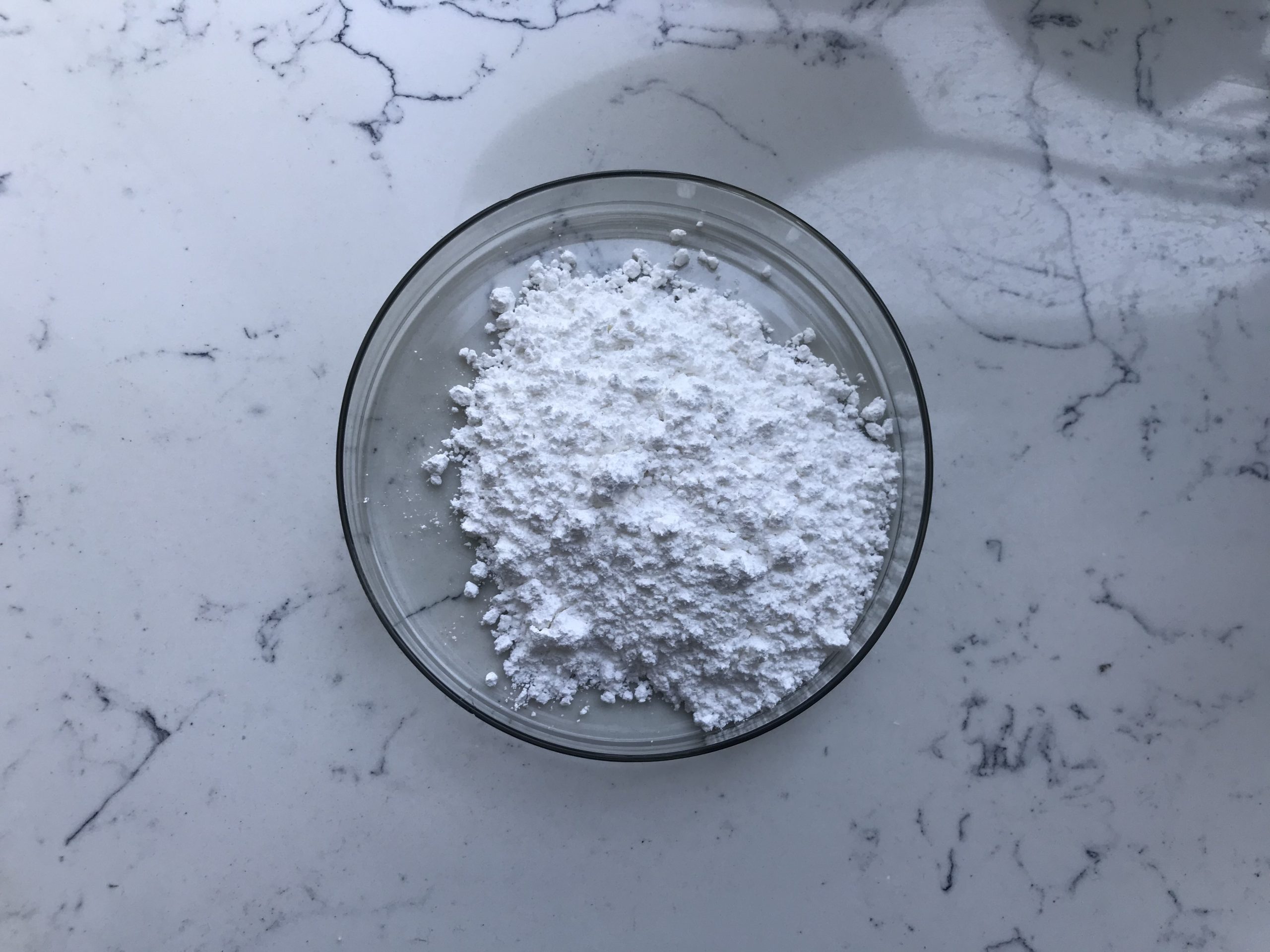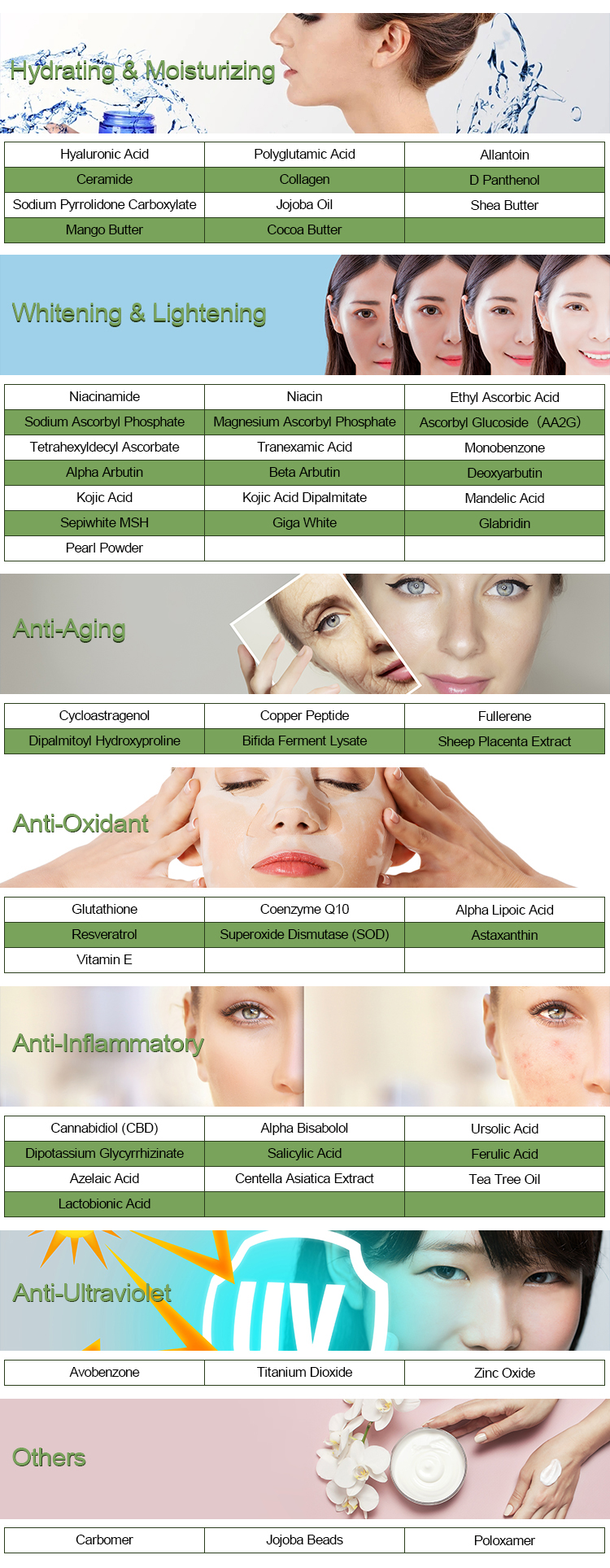Sodium Ascorbyl Phosphate (SAP) is a water-soluble derivative of vitamin C, also known as ascorbic acid. It is commonly used in the skincare and cosmetic industry. Sodium Ascorbyl Phosphate has several properties and benefits, including:
Antioxidant: Like pure vitamin C, Sodium Ascorbyl Phosphate is an antioxidant. It helps protect the skin from oxidative stress and free radicals, which can contribute to premature aging and skin damage.
Skin brightening: Sodium Ascorbyl Phosphate can help reduce the appearance of dark spots and uneven skin tone. It can inhibit the production of melanin, the pigment responsible for skin color, which makes it useful for treating hyperpigmentation issues.
Collagen production: Sodium Ascorbyl Phosphate can stimulate collagen synthesis in the skin, which is important for maintaining skin elasticity and reducing the appearance of fine lines and wrinkles.
Anti-inflammatory: It has anti-inflammatory properties that can help soothe and calm irritated skin, making it suitable for sensitive skin types.
Stability: Unlike pure ascorbic acid, which can be sensitive to light and air and may degrade over time, Sodium Ascorbyl Phosphate is more stable, which means it retains its effectiveness for a longer period in skincare products.

Sodium Ascorbyl Phosphate is often used as an ingredient in various skincare products, such as serums, creams, and lotions, to provide these benefits without the potential drawbacks of using pure ascorbic acid. It is considered a milder form of vitamin C and is better tolerated by individuals with sensitive skin.
It’s important to note that while Sodium Ascorbyl Phosphate can offer these benefits, individual reactions to skincare products may vary, so it’s a good idea to perform a patch test before using any new product, especially if you have sensitive skin or any skin conditions.
How to use Sodium Ascorbyl Phosphate?
Sodium Ascorbyl Phosphate (SAP) is a stable, water-soluble form of vitamin C that is often used in skincare products for its antioxidant and skin-brightening properties. It is suitable for all skin types and can help with various skin concerns, including hyperpigmentation, fine lines, and UV protection. Here’s how to use Sodium Ascorbyl Phosphate in your skincare routine:
Cleansing: Start with a clean face. Use a gentle cleanser to remove dirt, makeup, and impurities from your skin.
Toning: Apply a toner to balance your skin’s pH levels. This step is optional but can help your skin better absorb the Sodium Ascorbyl Phosphate.
Serum Application: Sodium Ascorbyl Phosphate is typically found in serums. Apply a few drops of the serum to your face and neck. Gently massage it into your skin using your fingertips. Allow it to absorb before moving to the next step.
Sunscreen: It’s crucial to protect your skin from UV damage. Vitamin C makes your skin more susceptible to sunburn, so apply a broad-spectrum sunscreen with at least SPF 30 in the morning. Wait a few minutes after applying the SAP serum before using sunscreen.
Moisturizer: If your skin tends to be dry, you can follow up with your regular moisturizer. Allow the serum to fully absorb before applying moisturizer.
Nighttime Use: You can use Sodium Ascorbyl Phosphate in your evening routine as well. Just make sure to follow it up with a good quality moisturizer. Some people prefer using it only in their evening routine to avoid any potential sun sensitivity.
Consistency: Consistency is key with skincare. It may take weeks or even months to see noticeable results. Use Sodium Ascorbyl Phosphate daily for the best outcomes.
Avoid Mixing with Certain Ingredients: While Sodium Ascorbyl Phosphate is generally well-tolerated, it’s essential to avoid using it with certain ingredients like niacinamide and alpha hydroxy acids (AHAs) or beta hydroxy acids (BHAs) at the same time. These combinations may cause skin irritation for some individuals. If you want to use these ingredients, you can alternate them in your routine (use one in the morning and the other in the evening) or consult a dermatologist for guidance.

Patch Test: Before applying Sodium Ascorbyl Phosphate all over your face, it’s a good idea to perform a patch test. Apply a small amount of the serum on a small area of your skin, like behind your ear, and wait to see if any irritation occurs. This will help you determine if your skin is sensitive to the product.
Expiration Date: Pay attention to the expiration date on the product. Vitamin C can become less effective over time, so make sure your product is within its shelf life.
Remember that individual reactions to skincare products can vary. If you experience any unusual or severe skin reactions while using Sodium Ascorbyl Phosphate, discontinue use and consult a dermatologist. They can provide you with personalized advice and recommendations for your skincare routine.
